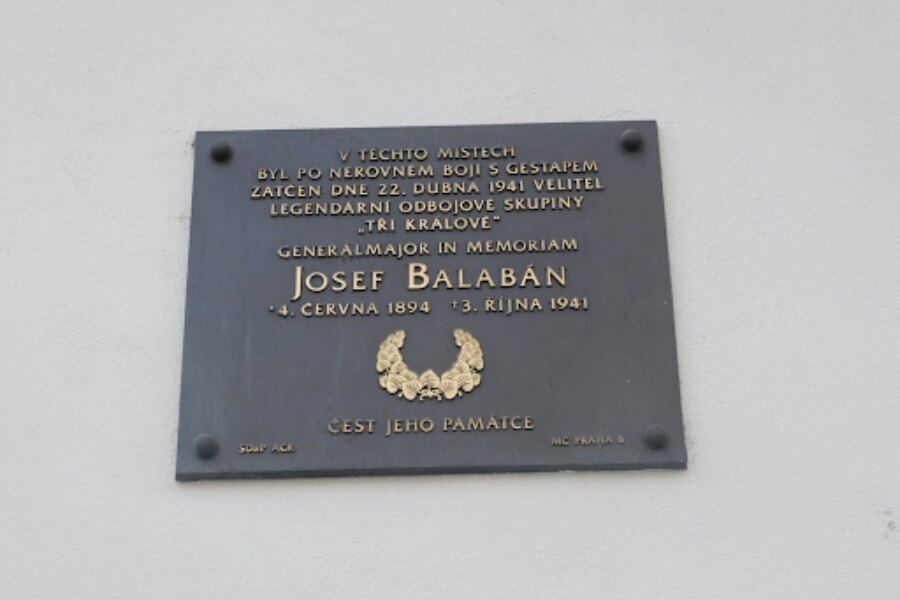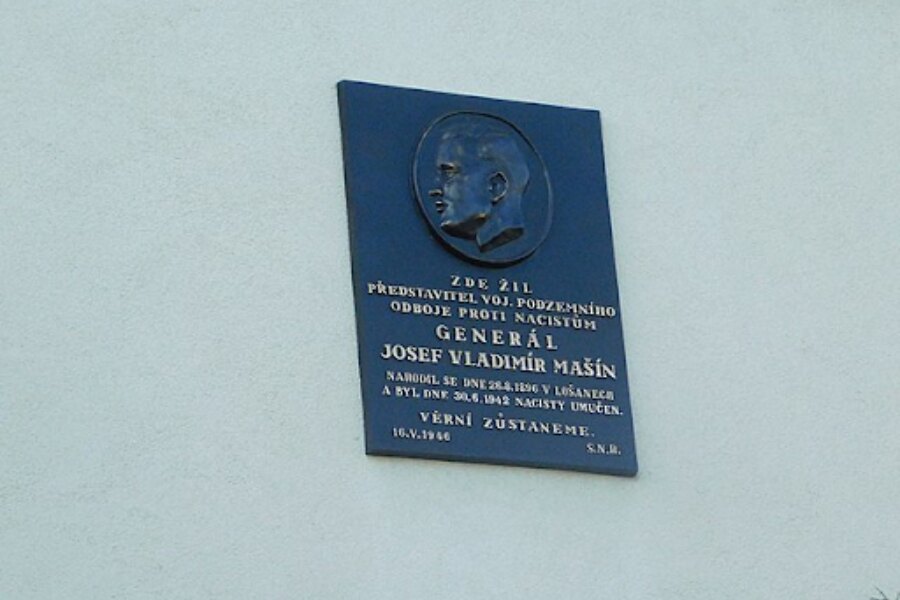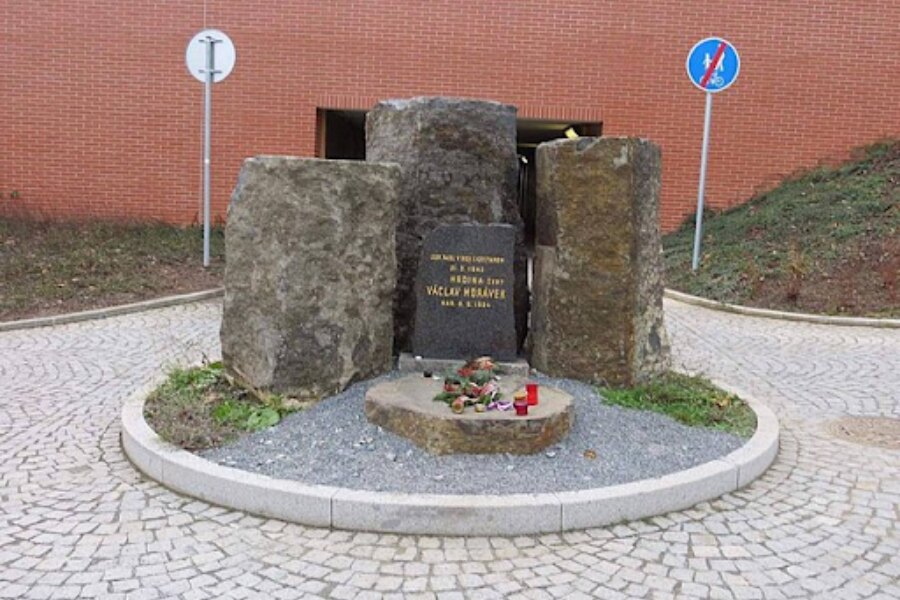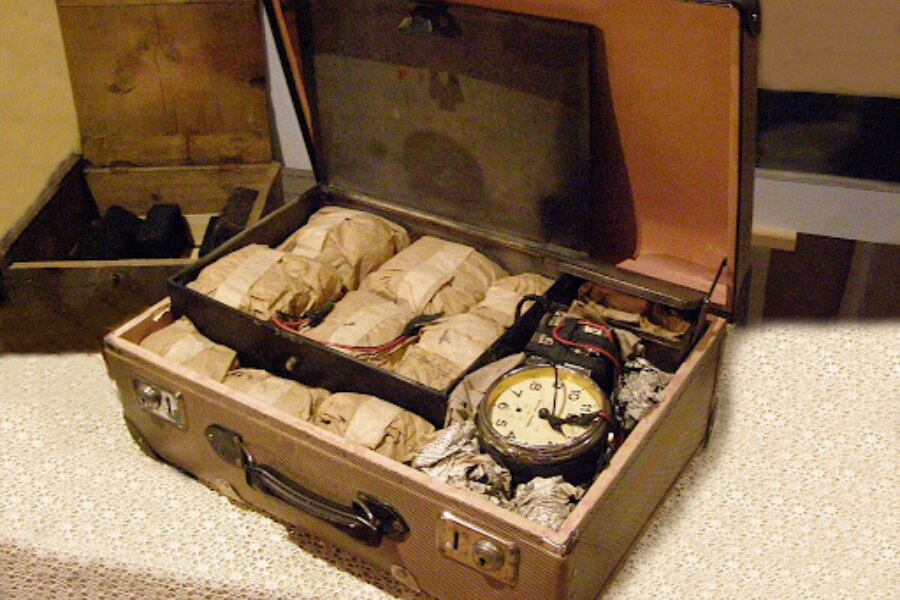The Three Kings resistance group
Immediately after the occupation of Bohemia and Moravia in March 1939, resistance groups began to form on our territory, which had the goal of making it hot for the German occupiers as much as possible. One of the most important was the Defense of the Nation (ON) group, thanks to which we can remember the brave acts of these determined and fearless heroes today.
Why Three Kings anyway?
The Three Kings is the Gestapo's nickname for these brave heroes after the Second World War. But the rebels themselves rather called themselves the Three Musicians or the Three Musketeers, and they even had their own d'Artagnan. The core of the group consisted of Josef Balabán, Josef Mašín and Václav Morávek. Over time, radio operator František Peltán also began to be considered a member of the group.
Who were the Three Kings?
The first member was the judicious and calm Josef Balabán, who had combat experience not only in the First World War. In 1915 he was deployed on the Russian front, where he was later captured. Fortunately, he did not stay in captivity for long. Czechoslovak legions were newly formed in Russia, so Balabán did not miss the opportunity to be in the center of events again. After the conclusion of the Munich Agreement, Balabán and other officers immediately began preparing plans for the creation of an underground army that would be able to operate effectively in the occupied territory.

Memorial plaque of Josef Balabán in Prague. Source: commons.wikimedia.org
Josef Mašín, on the other hand, was very active and impulsive, his story on the Russian front is similar to Balabán's. In 1915, he was taken to the front, where he immediately defected to Russian captivity. In 1916, he joined the Czechoslovak legions, in which he served until 1921. He participated, for example, in the battles near Zborov and near Bachmač. In March 1939, Mašín was suspended for disobeying the order not to resist the occupiers.
The main trio is rounded off by Václav Morávek, who was known for his piety, distinguished demeanor and cheerful nature. Morávek, unlike his colleagues, did not participate in any battles and built his military career mainly on the territory of Czechoslovakia. He first worked with the infantry regiment in Terezín, later he was transferred to the artillery in Olomouc and to the riding school in Pardubice. The news about the occupation reached him in Olomouc, where he and his unit were preparing for a clash. The crushed Moravian then tried to cross the border crossing into Poland, but was unsuccessful.
Of course, we cannot forget František Peltán – the fourth and youngest member of the group. Peltán began his basic service with an air regiment and was then trained as a radio operator.
Information in the main role
One of the most important activities of the resistance fighters was, of course, obtaining and passing on important information to the government-in-exile in London. For this purpose, it was possible to build a successful network with the help of railwaymen and postmen, who regularly brought new information about important factories or transports of weapons and ammunition. The news was subsequently broadcast using the Sparta I and Sparta II radios, which were also operated by František Peltán.
It was Peltán who managed to escape from the clutches of the Gestapo twice. The first time it happened was when he was interrupted by an overflowing bathtub while broadcasting, and the second time when the Gestapo surrounded his apartment and despite this, Peltán managed to escape from the house disguised as a railway worker.

Memorial plaque of Josef Mašin in Prague. Source: commons.wikimedia.org
Explosions in Berlin
But intelligence activity was definitely not the only thing that the resistance fighters focused on. In 1939, two bombs were planted in Berlin. The first was to explode at the police headquarters and the second at the Ministry of Aviation. An even more daring stunt followed in December 1940, when the Three Kings attempted to assassinate SS leader Heinrich Himmler. Unfortunately, the liquidation of one of the most important figures of Nazi Germany did not work out due to the delay of the train.
A cigarette for Fleischer
The most daring piece could be taken care of by none other than the seasoned prankster Morávek. He first made a bet with Balabán and Mašín for 1,000 crowns that he would have a cigarette lit by the elite Gestapo investigator Oskar Fleischer. To the surprise of the others, however, Morávek was not kidding and actually managed to get to Fleischer, disguised as a member of the Gestapo, who really lit his cigarette. The resistance fighters were understandably proud of their success, so the whole prank soon reached the top leadership of the Gestapo, and Fleischer was reminded of the whole situation for a long time afterwards.
Illegal magazine V boj
In addition to lighting cigarettes from high dignitaries, the Three Kings had other small pleasures with which they could get a little kick out of the Gestapo. One of them was the publication of the magazine V boj, which of course annoyed the Germans just because it was published regularly. The resistance fighters knew very well that the magazine would certainly not escape the attention of the Gestapo, and therefore they were very careful not to accidentally reveal information that could lead to their capture. As a joke, they even published one issue in German so that the Gestapo would not have to bother with its translation.

Monument to Václav Moravec in Prague. Source: commons.wikimedia.org
The Tragic End of Three Kings
Silent Balabán
The first to be arrested was Josef Balabán, who was supposed to meet another member of the resistance in the evening hours of April 22, 1941 and then try to expand ON. But instead of a resistance fighter, a member of the Gestapo arrived in disguise at the meeting with Balabán. The first of the Three Kings thus unknowingly fell into a trap from which he could no longer escape. After a short shootout, Balabán was arrested.
Despite the torture of the Gestapo, he did not give in and did not reveal anything, his bravery gained time for Mašín and Morávek, who in the meantime were able to move the precious radio and thus remained in contact with the government in exile. After the appointment of the acting Reich Protector Reinhard Heydrich, Balabán was sentenced to death and executed on October 3, 1941. So slowly but surely the resistance group began to disintegrate.
Mašín's rigid root
Not long after that, the Gestapo also came for Mašín, who was arrested on May 13, 1941. The arrest was preceded by the sending of a dispatch from the apartment where Mašín, Morávek and Peltán were currently located. During the broadcast, the bell rang and no one but Gestapo members could have been in front of the apartment. The resistance fighters managed to quickly destroy the radio and dispatches so that no important documents fell into the hands of the enemy. Mašín decided that he would not give up without a fight, so he burst open the front door like a cannonball and went to meet the Gestapo.
During the short fight, Mašín suffered several fractures and gunshot wounds, due to which he could not continue the fight. With the last of his strength, he tried to shoot himself, but one of the Gestapo officers shot him through the hand in which he was holding the pistol. With his attack, however, he gained time for Morávek and Peltán, who fled along a thin steel rope. Peltán badly bruised both legs during the jump, and Moravek lost a finger due to a knot in the rope.
Mašín refused to surrender even after arrest and cruel interrogations. He regularly clashed with the much stronger Gestapo, earning him a straitjacket in addition to increased security. During one of the escape attempts, Mašín should have tried to stun the guard and then escape. But he was weakened after everything he had gone through during the interrogations, so he didn't manage to deal a real blow to the guard. Because of this attempt, Mašín was moved to Pankrác, and the plans to rescue him were thus definitively buried. Efforts to exchange him for captured German officers also failed.
After the successful assassination of Reinhard Heydrich, the Gestapo forced Mašín to condemn the assassination, but he was told that he really regretted that he could not kill Heydrich himself. This was the last straw for the Gestapo and he was sentenced to death on June 30, 1942 and executed.

Reconstruction of an improvised explosive device constructed by the domestic anti-German resistance in the Protectorate of Bohemia and Moravia. Source: commons.wikimedia.org
Last of the Three Kings
Moravek survived the longest to escape from the Gestapo, who, after capturing his comrades, tried to free them, but unfortunately was unsuccessful. With Peltán's help, the decimated group managed to send messages abroad and maintain contact with A-54 agent Thümmel for a long time. However, Thümmel was discovered in October 1941 together with the Sparta I radio, and the noose around Morávek began to tighten.
The situation became complicated on December 20, 1941, when Morávek was ambushed in his apartment by a group of eight members of the Gestapo. Thanks to his prompt reaction, he managed to escape. Moravek then managed to help with the implementation of the airborne operation Silver A and also teamed up with the paratroopers Gabčík and Kubiš from the diversionary operation Anthropoid, who succeeded in eliminating the representative Reich Protector Reinhard Heydrich.
The fateful day for the last of the Three Kings was March 21, 1942, when he was supposed to meet with agent A-54, who at that time was already under the influence of the Gestapo. Václav Řehák was the first to go on patrol, and he was the first to fall into the trap. Subsequently, Morávek should have tried to free his comrade, but unfortunately without success. During the quick action, the fire of several members of the Gestapo, who had been waiting vigilantly in the shelter until then, focused on him. Morávek was hit by six wounds and died on the spot.
The sad end of d'Artagnan
František Peltán managed to evade the Gestapo for a long time. In the fall of 1941, he managed to save his own life for the fourth time with great luck. He then hid in a brewery in Cerhovice in eastern Bohemia, where the Gestapo came for him again. This time too, Peltán narrowly escaped the Gestapo, but his luck was to leave him very soon. On July 11, 1942, during an intelligence operation, František Peltán and Rudolf Mareš were surrounded by the Gestapo and seriously injured.
František eventually succumbed to his injuries after nine days. With the last member of the group, the fight of the Three Kings against the Nazi occupation ended, but it will never be forgotten thanks to their courageous actions. The bravery and indomitability of the Czechoslovak heroes gave hope to the subjugated nation long after their death.
Readers are further interested






























































































































































